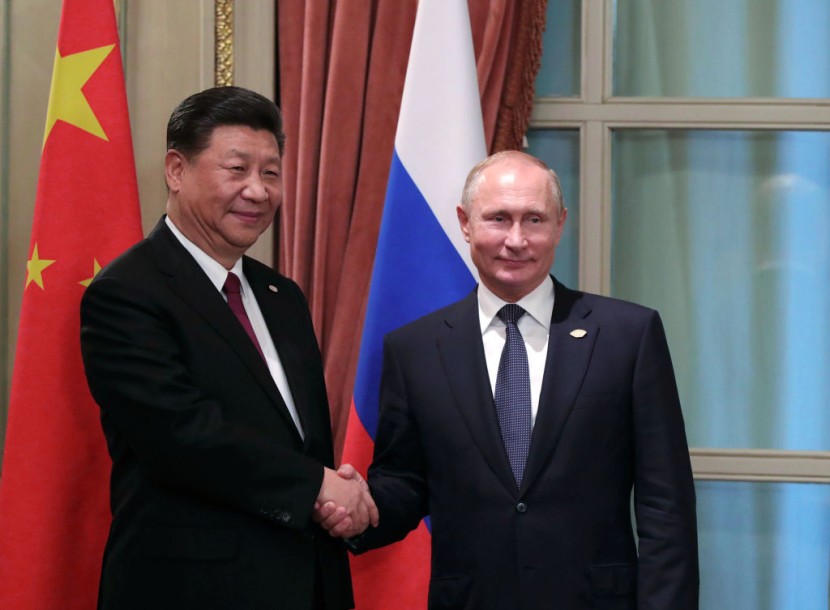
Russia and China have declared their support for Syria at a time when President Joe Biden is directing policy changes in Afghanistan and Iraq, two additional countries where American soldiers are stationed. However, unlike Kabul and Baghdad, the Syrian government in Damascus has rejected US military participation in the nation, instead of relying on Moscow and Beijing for support.
In a statement issued Monday, the joint Russia-Syria interdepartmental headquarters for the repatriation of refugees, a bilateral organization that signed 15 agreements during the most recent journey by a team from Moscow to Damascus, Russia repeated its position. The agreements were supposed to be aimed at improving Syrians' lives and speeding up the rebuilding of damage caused by a decade-long civil conflict, while both parties accused the West of delaying the country's rehabilitation and the return of millions of refugees.
Russia, China place good relations with Syria
China's Foreign Minister Wang Yi visited President Bashar al-Assad and other Syrian officials in Damascus earlier this month, signaling Beijing's continued support for the Syrian regime. China delivered a strong statement about the importance it placed on good relations with Syria by visiting Damascus and promising to support Assad's administration while the US waged financial warfare against the Arab country.
Wang reaffirmed China's support for Syrian sovereignty while in Damascus, stressing Beijing's resolute opposition to regional and international efforts to force regime change in Syria. The Trump-era Caesar Act, which imposes devastating penalties on Syria, has bipartisan support in Washington today.
Damascus officials have no intention of implementing the reforms and significant adjustments in Syria's foreign policy that would be required to persuade the US administration to suspend the Caesar Act. In this scenario, Syria is likely to remain subject to comprehensive sanctions imposed by the United States. Syria will continue to explore methods to get around them to the best of its ability unless and until this changes, as per Al Arabiya.
Since at least 2015, when Washington assembled a worldwide coalition to combat the Islamic State militant organization (ISIS) as it swept over large swaths of Syria and neighboring Iraq, where US troops and allies also fight the jihadis, US forces have been stationed in Syria. Following a years-long presence since a 2003 invasion, US soldiers had just left Iraq in 2011, the same year that protests in Syria deteriorated into civil conflict.
Per Newsweek via MSN, the battles are related to the wider US-led "War on Terror," which began in Afghanistan after 9/11 with the invasion against Al-Qaeda and its Taliban allies. After a U.N. Security Council decision in favor of involvement, with Russia and China abstaining, a new front opened for US forces as part of a NATO-led intervention on behalf of rebels against long-standing Libyan leader Muammar al-Qaddafi.
Read Also: Russia Successfully Tests Vladimir Putin's World- Destroying Nuclear Missile
Biden vows to end Iraq operation by the end of the year
The disparity between President Biden's management of Iraq and Afghanistan in terms of winding down America's conflicts is becoming more pronounced. Biden assured Iraqi Prime Minister Mustafa al-Kadhimi on Monday at the White House that the US would complete its combat operation there by the end of the year.
However, the president made it very clear that the majority of the 2,500 American troops presently stationed in Iraq will remain, although in advising and training duties on paper. The US, on the other hand, is making a far more clean departure in Afghanistan, withdrawing troops and formally completing its military operation by the end of August.
Biden also stated that the objective of denying terrorists a haven in the nation was already accomplished long ago and that keeping troops on the ground was no longer worth the cost of lives and money. The president's handling of the two wars, which began after the September 11, 2001, terrorist attacks, reveals not just America's strategic objectives, but also how he sees the two battles.
In withdrawing from Afghanistan, Biden stated that there was no longer any reason to expect that the US could convert the nation into a stable democracy. However, he views an American presence in Iraq as vital, at least in part, to counter Iran's influence and the ongoing danger of the Islamic State, another decades-old war that many consider being more costly than the one in Afghanistan, New York Times reported.
Related Article: Biden Announces the End of Combat Role of US Troops in Iraq








